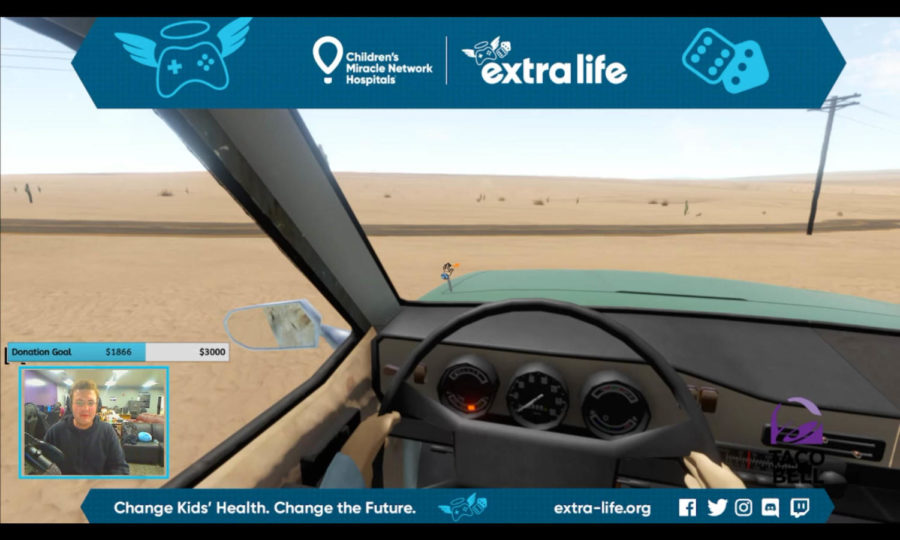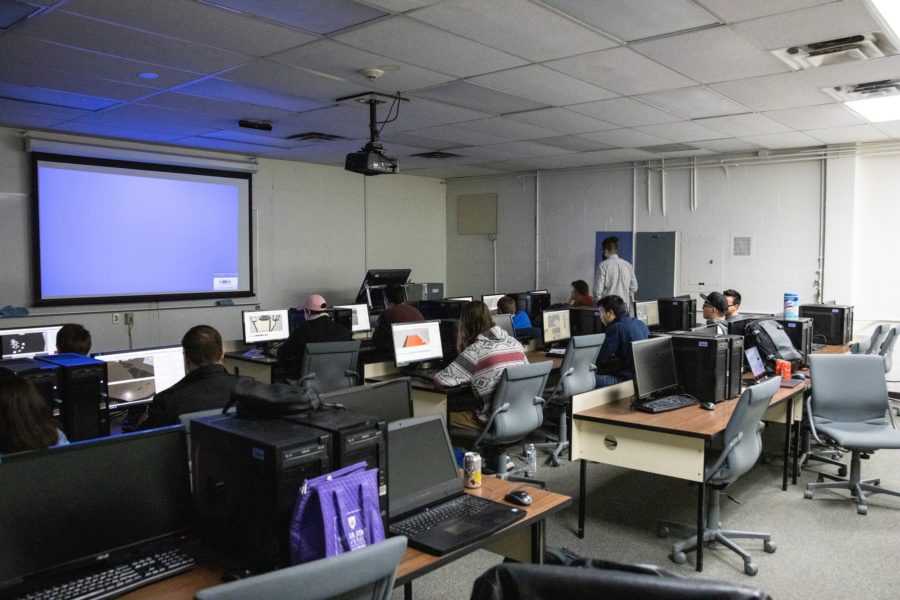Deep in the studious, academic bowels of the WSU Stewart Library is a little-known hideaway for gamers. The video game lab sits in Room 9 of the library, featuring an X-box, Wii and PlayStation3 along with a binder full of games. The lab is open and available anytime the library is open.
Jason Francis, health sciences librarian, wrote the grant to get the lab started. He said the library needed one for computer science students to be able to earn their video game programming certification.
“As part of the certification, the students must review certain video games, which were being purchased for the students to use,” Francis said.
Francis said he wants all students to come in and enjoy the lab, not just computer science majors.
“In meeting with several library faculty and staff, I wanted the library to offer access to the video games to not only (computer science) students but all students, faculty and staff who may be interested,” he said.
Students are invited to go play games in-between classes to help relieve stress.
“The game labs are a great place to unwind and relax after a stressful test or presentation,” said Misty Allen, the librarian who rents out the equipment.
Allen also oversees the new video game lab at the Davis campus, which was purchased by the computer sciences department.
Local student and video game lover David Welch questions if this was money well-spent.
“I don’t know if video games are worthy cause for school money,” Welch said.
Francis says the money came from an academic resources and computing committee (ARCC) grant, a WSU committee that helps fund technology used for teaching.
“There have been (people) on campus who have questioned why money was spent on (the lab),” Francis said, “but once we explain that it was grant money then they don’t seem to have any issues. It has been far more positive than negative.”
Besides the lab being used as a stress reliever or an aid to earn video game certification, Francis has ideas to use it for learning purposes.
“I designed it so the consoles and TVs are on mobile carts with the idea that faculty could take the video games to their classes to teach if they want,” Francis said. “Perhaps a history course could use video games to simulate great battles from history or psychology courses researching how students use video games. Interactivity to me is the key to teaching now.”
Francis would love to hear from students who have suggestions to improve the lab or to add specific video games titles.
One common suggestion has been to invest in newer-generation consoles. Newer equipment will purchase as soon as the new grant is successfully processed.













